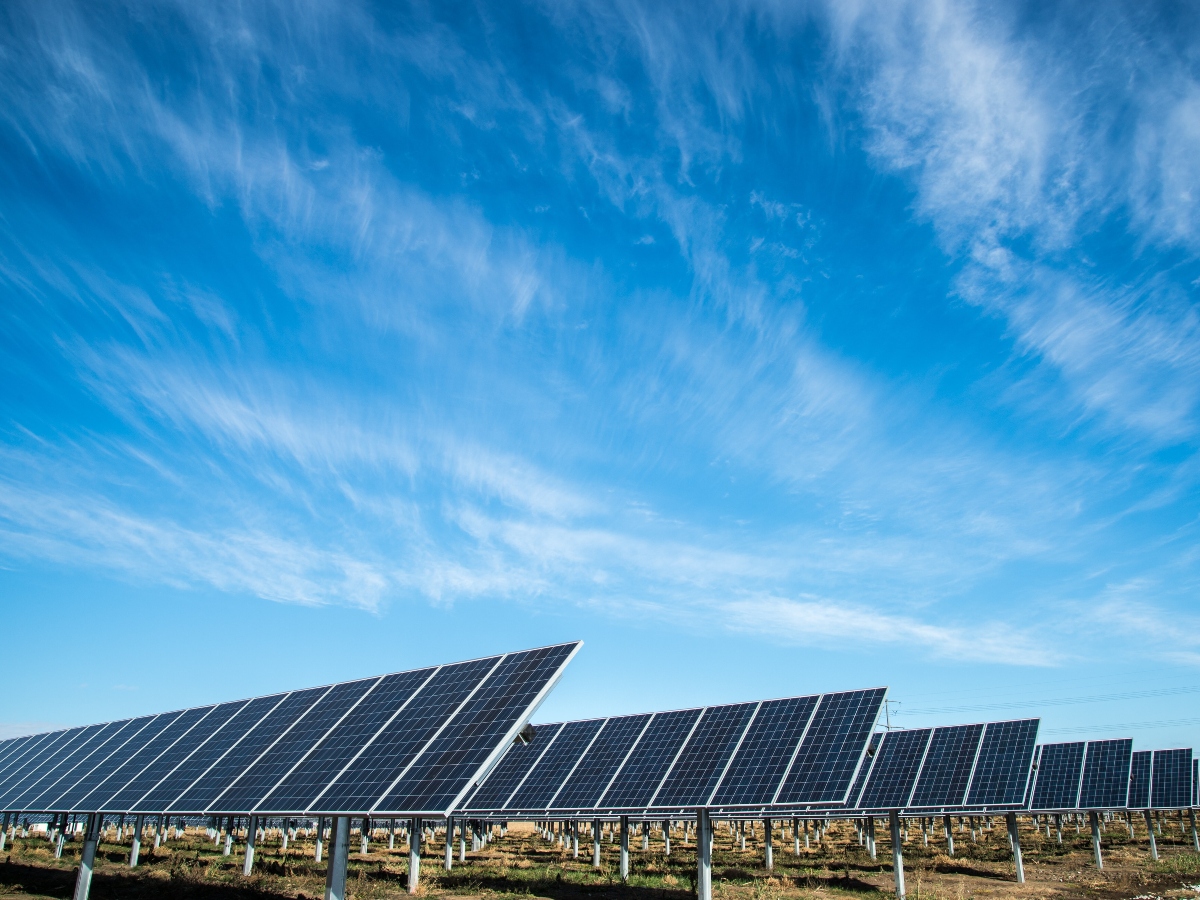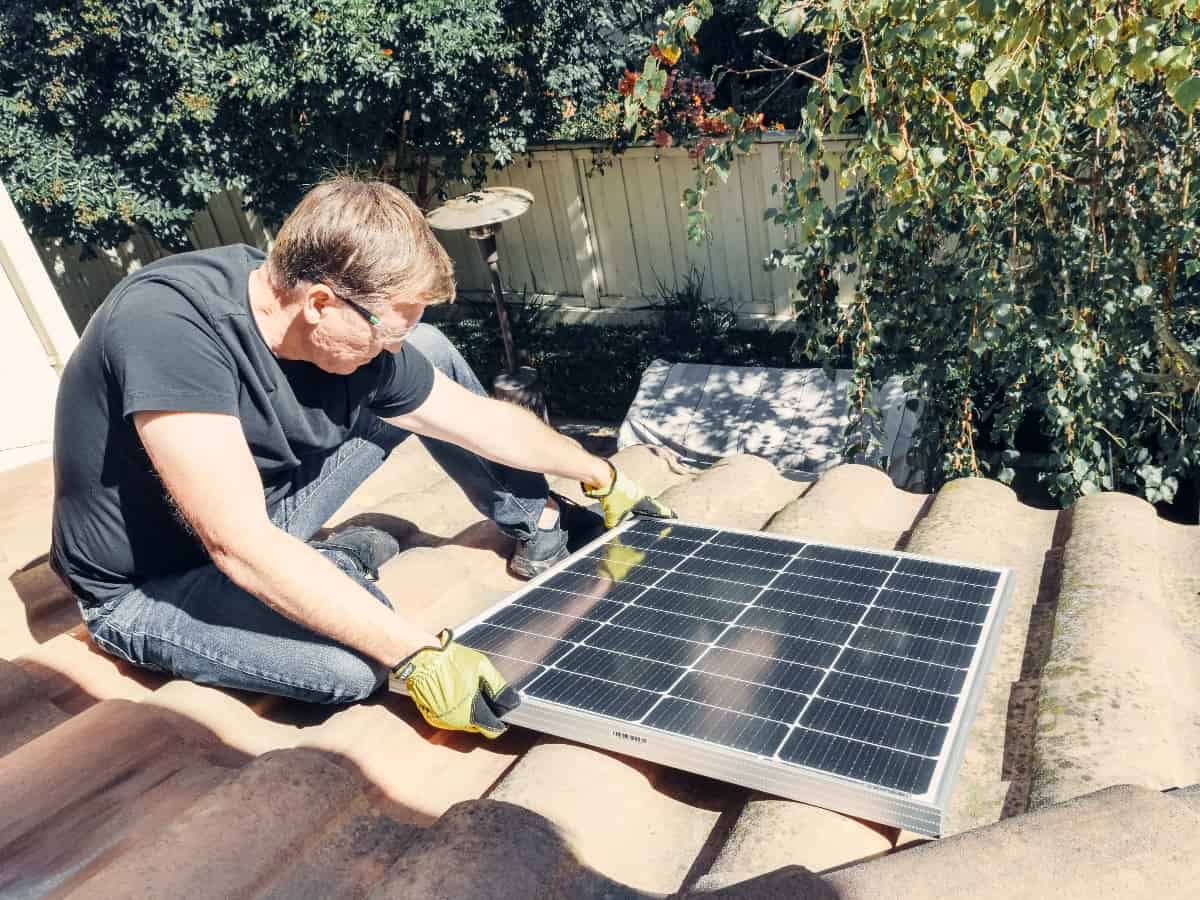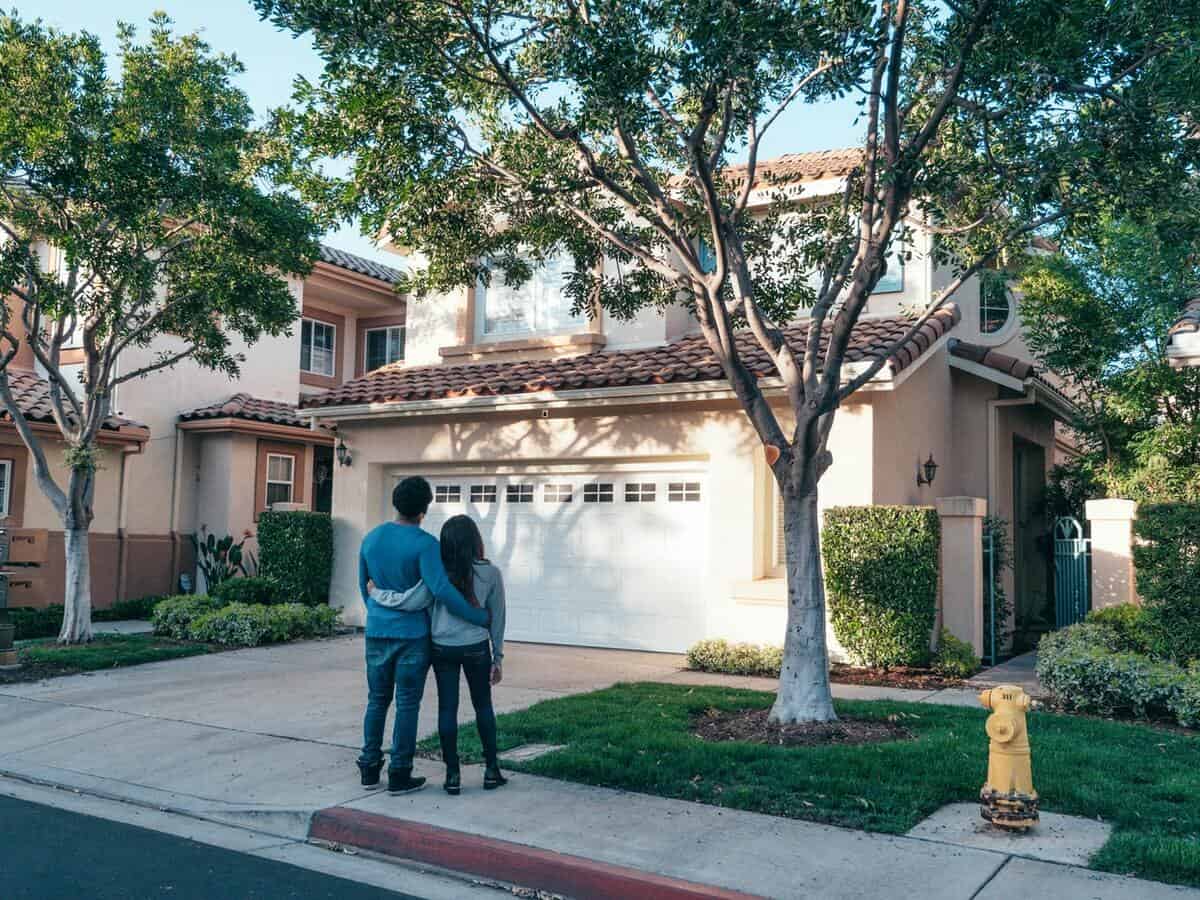These days, more and more people are switching to renewable solar power at home. In fact, sources estimate that more than 3% of electricity in the United States comes from solar energy alone—and that number is only expected to grow. It’s also important to note the cost of installing solar panels is decreasing, making the switch more affordable for families across the country. However, perhaps you still find the pricing surrounding solar panels to be an issue.
There are plenty of solar panel loans available. From personal and home equity to third-party loans, there’s likely to be a financing solution that suits your needs.
While the cost to install solar panels on a home is going down, it can still be significant. Yes, this investment can certainly pay off in the long run, but many homeowners and business owners have a difficult time with the up-front fees.
The good news? There are plenty of solar panel loans available. From personal and home equity to third-party loans, there’s likely to be a financing solution that suits your needs. Explore some of these options for yourself to see how a solar-powered home or business could be within your reach!

Discover Energy Audits with Solar Energy and ONIT Home
Try our Free Energy Audit to make sure your home is performing at optimum energy efficiency. We’ll inspect every nook and cranny of your home to make sure it’s best serving your needs. We’ll also give you tips on lowering your energy bills, conserving energy, and creating a more efficient space. To learn more about how we can help you maintain a top performing home, visit us online to get started!
Exploring Options for Solar Panel Loans
Secured vs Unsecured Loans
Before diving into the different loans homeowners can choose from to finance their solar panels, we’d like to point out that these loans are either secured or unsecured.
- Secured Loan. The key difference between a secured and unsecured loan is the presence of collateral. A bank lender for secured loans will ask for an asset, such as your home or a secured car loan, to serve as a lien on your property. If you cannot pay off the rest of your loan, your lender can take possession of your collateral. The interest rates for a secured loan are often lower than an unsecured loan.
- Unsecured Loan. Unsecured loans don’t require collateral to secure financing. However, because this type of loan is more fragile for the lender, the interest rates are often higher.
Secured Loan Options
Home Equity Loans
If you’re a current homeowner with a decent amount of equity in your home, you might consider a home equity loan. Specifically, this type of loan allows you to dip into some of your home equity to pay for improvements (such as a solar panel installation). In general, this type of loan lets you borrow up to 85% of your total home equity, which can be a significant amount. After finalizing the loan, you can access all of this money in a lump sum.
Home Equity Line of Credit (HELOC)
Homeowners will often use a home equity line of credit (HELOC) to complete renovation and improvement projects around the house. A HELOC provides you with a loan matching up to 85% of the equity of your home. However, a HELOC doesn’t provide you with the entire loan upfront. Instead, the bank grants you a line of credit you can use through the means of a credit card or checkbook. The interest rate on your loan can fluctuate and is often determined by the lender. The repayment terms also vary.
Residential PACE Loans
PACE loans are specialized in the sense that they focus on energy-efficient upgrades. A PACE loan is also unique because it’s not readily available to families across the country. Currently, the only states offering this type of financing are California, Florida, and Missouri. However, if you do live in one of these three states, you might want to consider this option.
A PACE loan works by letting homeowners finance their solar panels while covering the cost throughout time with a voluntary assessment. This form of financing ties your property to the collateral, linking the debt to the property. You can repay the money you borrow with your property taxes and may be able to apply for environmental tax credits. If you sell your property and move out of the home before paying off the PACE loan, it will become the new homeowner’s responsibility.
Government Loans
There are also government loan options available for homeowners wanting to have solar panels installed on their properties. Two of the most popular examples include the FHA’s PowerSaver Second Mortgage and the 203(k) loan.
- PowerSaver Second Mortgage. A PowerSaver Second Mortgage allows qualifying homeowners to take out a second home loan in the amount of up to $25,000. This loan is to help families install solar panels on their property. Homeowners who take advantage of this option are also given 20 years to repay the loan. This can help to make solar panels very affordable on a monthly basis. To secure this loan, your credit score should be at least 660. You are also likely to pay a fixed interest rate from 5-10%.
- 203(k) Loan. Another option, known as a 203(k) loan, allows homeowners (and prospective home buyers) to essentially roll the price of solar panel installation into their mortgage. From there, borrowers can take the total length of the mortgage term to pay back the solar panel funds. To improve your likelihood of approval for this loan, make sure your credit score is at least 640.

Unsecured Loan Options
Personal Loans
Many banks offer personal loans that can be used for any purpose, including home and business improvements like solar panel installation. And if you have decent credit, there’s a good chance you can get approved at a relatively low interest rate. The amount you can borrow through a personal loan can vary greatly from one lender to the next; just be sure to understand your loan repayment terms (including how long you’ll have to pay it off completely) before you sign on the dotted line.
Third-Party Loans
Another option to consider is direct financing from the solar panel company you hire to supply and install the panels at your home or place of business. While not all companies offer their own solar panel loans, this is becoming a more common option. Going directly through your solar provider for your financing can be convenient—and you may even be able to take advantage of some special loan terms and low interest rates to save money.
Things To Consider Before Getting A Solar Loan
Still not sure which financing option is right for you? There are a few factors to consider that may help you reach your decision.
Know What You Can Afford
Before making such a large financial commitment, take some time to think about what you can afford. If you need to, sit down with your spouse to discuss the different options. Make a pros and cons list and review key points together. Some questions you should be asking and factors to consider include:
- What’s your credit score and credit history?
- Which financing method are you most comfortable with?
- How will the loan you’re eyeing work for you and your family?
- Can you afford the payments?
- Is there a down payment requirement? If so, how much can you afford to pay?
- What is the solar loan’s length?
- Do you understand the interest rates?
- Are there hidden fees or penalties?
Talk to Your Financial Advisor
Schedule an appointment with your financial advisor to crunch numbers and plan a route that’s stable for you and your family. A trusted financial advisor likely understands your financial habits and the health of your bank account. They’ll use this and their own knowledge to help you pick a solar panel loan that’s best for your needs.

Review Application and Qualification Requirements
When you’re ready to secure a loan, start exploring specific application and qualification requirements for any type of financing that have your interest. Some loan types, such as personal loans, may require a minimum credit score. Home equity loans, on the other hand, will require your home to be appraised at a higher value than what you currently owe on your mortgage.
Apart from federal incentives, your state may offer its own unique solar incentives to make financing solar panels easier.
Apply For Federal Tax Credits
You’ll also want to consider any Federal tax credits for which you may be eligible by having solar panels installed. Many borrowers will qualify for a Federal Solar Tax Credit of $4,000-$5,000 that can be directly applied to the balance of your loan to reduce your total amount owed. This can help make solar energy even more attainable for many borrowers.
Check out our guide on the Federal Solar Tax Credit.
Apart from federal incentives, your state may offer its own unique solar incentives to make financing solar panels easier. These can range from property tax exemptions to Solar Renewable Energy Credits that can essentially pay you for producing solar energy. Browse your state’s resources or speak with your local utility company for more information.
Utilize Other Savings and Advantages
Don’t forget that having solar panels installed on your property can also improve your potential resale value. Specifically, studies have found that full solar panels on a home can increase resale value by anywhere from about $4,000 to $6,000. Meanwhile, your solar panels will help to reduce your monthly electric bills by up to $100 (or more!) per month. In this sense, it is possible that your solar panels will gradually pay for themselves over time.
Looking for more ways to save money around the house? Learn how you can reduce energy bills during the warmest months of the year.
The Final Word on Solar Panel Loans
Looking to take advantage of some of the lowest solar rates in the industry? Our team at ONIT Home is here to help. We provide quality, competitively priced solar power systems for your home or place of business. We’re also proud to offer a wide range of easy financing options to make the switch more affordable for you. Meanwhile, our systems come with a 25-year warranty to bring you peace of mind.
Start reducing your carbon footprint and save money on your electricity bill with clean and reliable solar energy. Find out more about our residential and commercial solar panel offerings by contacting the ONIT team today at 1(833) 433-0331. You can also request a free, no-obligation quote online to learn more about our Smart Choice Financing!
ONIT’s expert team can help make your green energy goals a reality. And when you install a solar power system with ONIT Home, you can install a whole home water filtration system and smart security system for FREE with installation in two weeks. Additionally, we’re offering $1,500 in vouchers to be used with solar, water filtration, and home security. Contact us today at 1-833-433-0331 to learn how you can enjoy this special offer.



